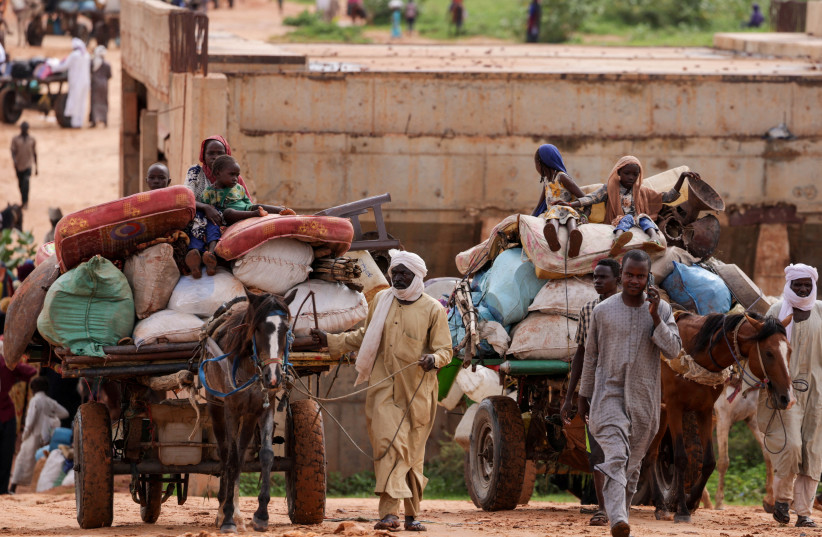One of the many victims of the October 7 massacre in Israel was Adam Barima, a Darfurian refugee who escaped Sudan and reached Israel about 15 years ago. He was murdered in the southern city of Sderot as he was walking in the street, shot by Hamas terrorists.
Following his death, we decided to write about him and Darfur as we felt that the fate which haunted and finally caught with him in Sderot can also shed some light on the atrocities of October 7 in Israel.
Why did Barima flee Darfur? For about 20 years now, the Janjawid, a Sudanese militia group, has been invading villages in Darfur massacring children, women, men, and the elderly. Since last April such massacres have been happening again in Jenena and elsewhere in the area. Thousands have been brutally murdered, women raped, entire villages and cities burned down, civilians taken hostage, an entire region displaced, and the world remains silent. You can watch the recent videos filmed by the Janjawid and see how they wander around with their motorcycles, burning houses and leaving dead bodies all over.
Do all of these horrors sound familiar?
Such brutal, cruel, and systematic slaughters are not spontaneous. They are well-planned and require special training and instruction. Assassins are brainwashed into believing that the people they are targeting are not humans because they are black; dangerous rebels; infidels; pigs; Jews; settlers; or collaborators. Such assaults are therefore genocidal in principle. Assassins can commit the worst atrocities imaginable, including torture and mutilation, thus succeeding in terrifying people, breaking their spirits, and scaring them away. If such attacks are repeated over and over, they eventually result in a genocide.

Yes, Israel and Darfur are comparable
One could mistakenly conclude that because Israel has more military power over Gaza, the comparison to Darfur, a region within Sudan fighting against the central government, is false. Such simplicity however overlooks the complex geopolitical context of Israel and Gaza: a context in which Israel does not have a regional upper hand and which allows armies such as Hezbollah in Lebanon and Hamas in Gaza to be heavily armed and funded and act as proxies in the service of Iran.
Returning to Barima, the documentary film The Devil Came on Horseback already described as far back as 2007 the genocide in Darfur and how Janjawid assassins ride on horses into villages, destroying all those whom they find on their way. For Barima, this time, the devil arrived on motorcycles and trucks. It did not matter that Barima was Muslim and not Jewish; that he spoke Arabic; that he did not have Israeli citizenship.
For the devil, it was enough because Barima was simply there.
Hadas Yaron Mesgena is a senior lecturer at The Academic College of Tel Aviv-Yaffo. Usumain Baraka is a refugee from Darfur and a social activist.
